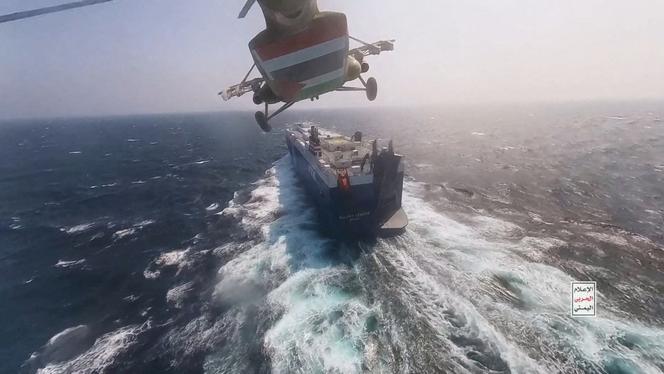


Hardly a day goes by without a report of an attack on a Western ship in the Red Sea by the Houthis, the rebels who control a large part of Yemen and are part of the Iranian-backed "axis of resistance" against Israel. Since Hamas's attack against Israel on October 7, they have been stepping up the pressure in a region that is strategic for world trade. To the point of seriously disrupting maritime traffic and forcing many Western shipowners and navies to consider alternatives.
On Thursday, December 14, they targeted a contained ship belonging to the shipping group A.P. Moller-Maersk. The Maersk Gibraltar, on its way from Salalah in Oman to Jeddah in Saudi Arabia, was hit by a missile. The crew was unharmed and the vessel is intact, said the company, which has seen six of its ships attacked since November. In recent days, the French navy, which permanently deploys two vessels between the Red Sea and the Persian Gulf on security missions, saw one of them targeted. The multimission frigate Languedoc had to shoot down threatening drones twice between December 9 and 12. Some were aimed directly at the Languedoc, others at a Norwegian oil tanker, the Strinda, to which the French ship came in aid.
On Friday, they struck a cargo ship owned by German transport company Hapag-Lloyd, causing a fire on deck in the latest of a near-daily series of attacks in the commercially vital waterway. A Hapag-Lloyd spokesman told Agence FRance-Presse: "There has been an attack on one of our ships." The ship was en route from the Greek port of Piraeus to Singapore. There were no casualties and the ship is now traveling on towards its destination, he added.
Having already significantly reinforced its naval presence in the area at the start of the conflict between Israel and Hamas, the United States is now looking for partners to limit the risk of any slippage. On Friday, US National Security Advisor Jake Sullivan said the "United States is working with the international community, with partners from the region and from all over the world to deal with this threat."
However, this appeal has yet to be translated into concrete action. The US has already commissioned several task forces to combat piracy, illegal fishing and terrorism in the region. More than 30 countries are taking part. "It's going to be difficult to find countries with the capacity to reinforce these task forces. The Gulf states have navies of limited scope, and so do the Europeans," noted Jean-Loup Samaan, an associate researcher at the Middle East Institute of the National University of Singapore.
You have 65% of this article left to read. The rest is for subscribers only.
